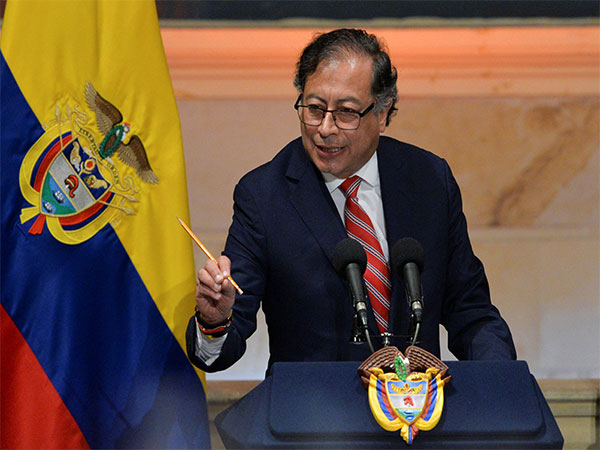U.S. Sanctions Colombian President Gustavo Petro Over Cocaine Surge
The U.S. has sanctioned Colombian President Gustavo Petro, citing his inaction on cocaine trafficking to the U.S. Treasury Secretary Scott Bessent claims Petro's leadership has facilitated cartel operations. Petro refutes the allegations, viewing them as paradoxical given his anti-drug efforts. Sanctions also target Petro's family and associates.

The United States intensified its crackdown on cocaine trafficking by imposing sanctions on Colombian President Gustavo Petro, accusing him of failing to prevent the drug's flow into the U.S. Washington's move represents a direct challenge to the Latin American leader, who has often been at odds with former U.S. President Donald Trump.
Treasury Secretary Scott Bessent announced the sanctions, asserting that since Petro's rise to power, cocaine production in Colombia has reached unprecedented levels. "President Petro has allowed drug cartels to flourish and refused to stop this activity," Bessent said, emphasizing the need for decisive action to protect the American public from the drug epidemic.
In response, President Petro defended his long-standing efforts against drug trafficking, arguing the sanctions contradict the aid Colombia has provided to reduce U.S. cocaine consumption. The sanctions extend to Petro's family and high-ranking officials, such as Colombian Interior Minister Armando Benedetti. This move puts Petro alongside other sanctioned leaders like Nicolas Maduro and Vladimir Putin.
ALSO READ
-
Russian Resilience: Dmitriev Shrugs Off U.S. Sanctions
-
Escalating Tensions: U.S. Sanctions on Colombian Leader Petro
-
U.S. Sanctions Deepen Feud with Colombia over Cocaine Crisis
-
U.S. Sanctions Colombia's President, Escalating Tensions Over Drug Trade
-
U.S. Sanctions Colombian President Amid Drug Allegations









